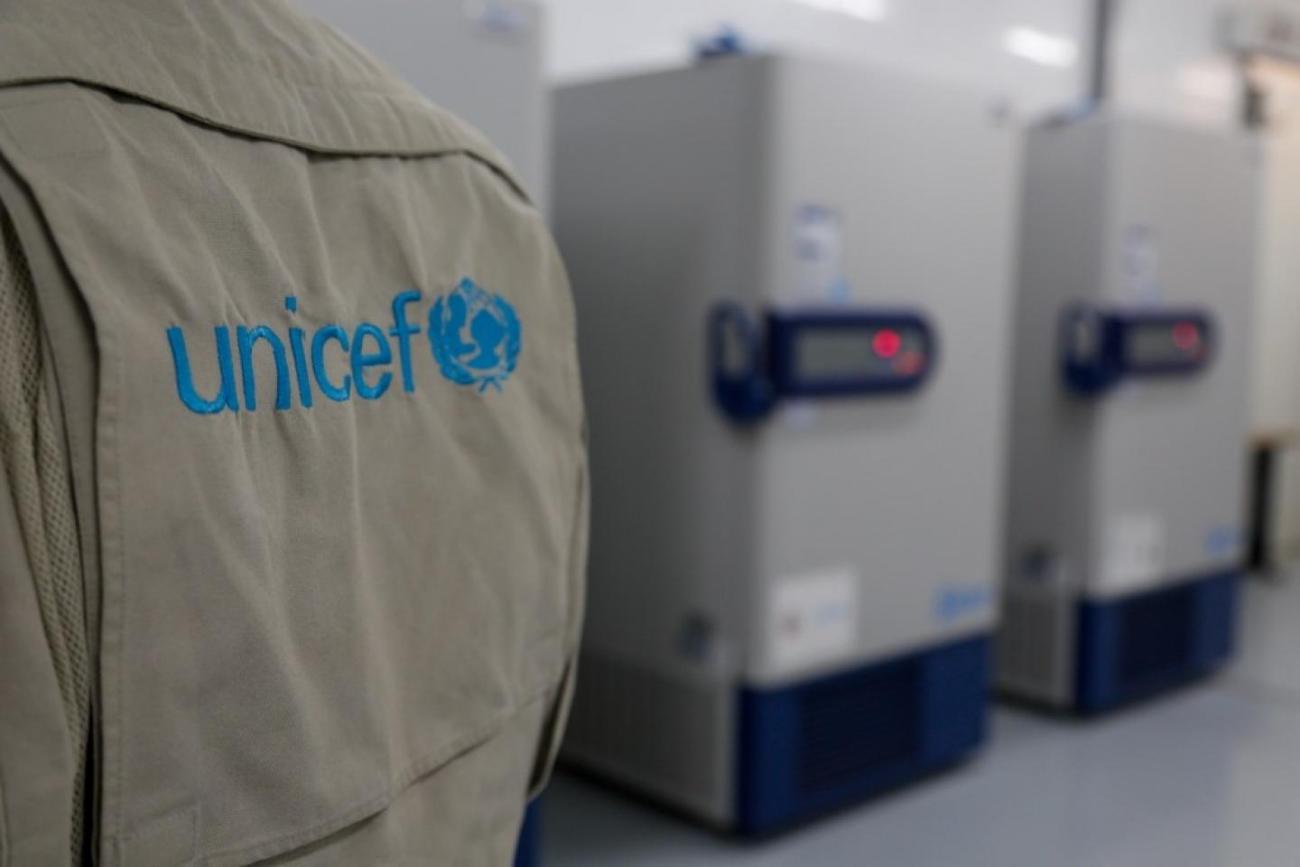Pfizer vaccines delivery in Egypt: A story of the essential cold chain

How an incredible race against time made possible the delivery of Pfizer vaccines
On the 30th of September, Egypt received the first donation of Pfizer vaccines, gifted from the U.S. Government. Around 1.6 million vaccines, the first batch of a total of 8.2 million vaccine doses to be delivered to Egypt in the coming weeks and months.
Delivering only vaccines would not have make much sense. Without the proper cold chain established by the Ministry of Health and Population with UNICEF support, these vaccines could have been thrown away after few weeks.
Vaccines are sensitive biological products that lose their potency and effectiveness if they are exposed to temperature outside of the required margins. In the case of Pfizer vaccines, they have to be kept at ultra-low temperature, between -60°C and -80°C (-112°F to -76°F)! This is three to four times colder than a regular home freezer, which poses challenges in a country like Egypt.

UNICEF/Egypt 2021/Jonathan Crickx
One of the key roles for UNICEF was to procure and deliver the fridges that will allow storage and transport of the vaccines at ultra-low temperature.
“Without these fridges, we wouldn’t have been able to store the vaccines and that’s why we were in a race against time, to make sure we would have the freezers before the vaccines arrival” explains Essam Allam, Health Officer at UNICEF Egypt Country Office.
As early as beginning of the year 2021, UNICEF and the Ministry of Health and Population explored the possibility of receiving some of these new COVID-19 vaccines. In June 2021, the United States Government announced the donation of millions of COVID-19 vaccine doses.

UNICEF/Egypt 2021/Jonathan Crickx
UNICEF’s Supply Division has decades-long expertise in terms of vaccine cold chains, procuring and delivering vaccine fridges and freezers to support routine immunization and outbreak response around the world. But the cold chain for Pfizer vaccines is a completely different story and required UNICEF to work at unprecedented speed to source and transport the critical equipment before the vaccines arrive to countries.
“The freezers delivered by UNICEF are products of a completely new technology; they require very specific handling and storage conditions. For example, the weight is more than 350 kilos each, and they need to be transported and moved whilst remaining vertical. They require generators to ensure consistent electric supply, and the temperature of the room where they are stored needs to be constantly around 20 °C degrees” says Oliver Petrovic, Chief of Child Survival and Development section in UNICEF.

UNICEF/Egypt 2021/Jonathan Crickx
Under the leadership of the ministry, and in close cooperation with WHO, Pfizer, and USAID, UNICEF procured and delivered these freezers quickly. The announcement of the U.S. donation was made in June 2021, and the expected delivery had to take place within only a few months. The clock was ticking. “We were working around the clock” remembers Oliver Petrovic. “There were so many aspects that we needed to learn, while making very fast decisions. In addition, we also had to share the knowledge and information needed for our colleagues from the Ministry of Health and Population to also learn quickly how to handle this new equipment. When we started the procurement for these freezers, we thought we would never been ready in time, but ultimately, we were!”

UNICEF/Egypt 2021/Jonathan Crickx
Each of these 868 liters freezers can accommodate 300.000 Pfizer vaccine doses. With 6 freezers, this room has a capacity to store 1.8 million doses
In many countries, the authorities built one or two centers to store vaccines requiring an ultra-low temperature cold chain. In Egypt, the Ministry of Health and Population managed to deploy six centers in different geographic locations. This has been a priority for the Minister, Dr. Hala Zayed, who wanted to ensure fair and equitable access to these vaccines across the country.
Almost 14 million people received their first dose of vaccines, while 6,870,521 people received the second dose, and enrollment is steadily rising. The Ministry of Education has announced the roll out of the vaccines among teachers and education staff. This comes in addition to several large-scale vaccination campaigns reaching millions in Egypt.



